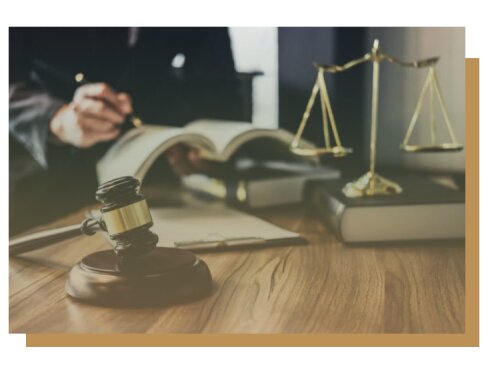
Best Arrests & Searches Lawyers in Saudi Arabia
Share your needs with us, get contacted by law firms.
Free. Takes 2 min.
Or refine your search by selecting a city:
List of the best lawyers in Saudi Arabia

About Arrests & Searches Law in Saudi Arabia
In Saudi Arabia, the legal framework governing arrests and searches is rooted in Islamic Sharia law. The procedures for conducting arrests and searches are defined by the Saudi Code of Criminal Procedure, which ensures both the enforcement of the law and the protection of individual rights. The laws emphasize the need for warrants in most cases and dictate the manner in which law enforcement can carry out these actions to maintain the integrity and dignity of individuals. Understanding the intricacies of these laws is crucial, especially for expatriates and visitors, as they may differ significantly from those in other countries.
Why You May Need a Lawyer
Legal situations involving arrests and searches can be complex and stressful. Here are some common scenarios in which legal assistance may be essential:
- Unlawful Arrest: If you believe that you have been arrested without proper legal grounds or warrant, a lawyer can help you challenge the arrest.
- Search Without Warrant: A lawyer can provide legal advice if your home or property has been searched without a warrant or consent.
- Detention: If you are detained beyond the legally permissible period, a lawyer can advocate for your release or a court hearing.
- Language Barriers: Expats or non-Arabic speakers may face communication challenges; a lawyer can ensure that your rights are understood and defended.
- Understanding Rights: A lawyer can explain your rights under Saudi law in the event of arrest or search, helping you navigate legal proceedings.
Local Laws Overview
Key aspects of the local laws on arrests and searches include:
- Arrest Warrants: Generally, a warrant is required for arrest unless the crime is observed firsthand by a law enforcement officer.
- Search Warrants: Searches typically require a warrant issued by the Public Prosecution unless immediate action is justified.
- Detention Period: Initial detention is limited to 24 hours, extendable by the prosecutor for up to five days without court intervention.
- Investigation Rights: The accused has the right to know the reason for arrest and can contact family or a lawyer.
- Privacy of Women: Searches involving women must be conducted by female officers where possible.
Frequently Asked Questions
What rights do I have if I'm arrested?
You have the right to know the charges against you, to contact family or legal representation, and to be treated with dignity during arrest and detention.
Can the police search my house without a warrant?
No, a search of your home generally requires a warrant unless exceptional circumstances justify immediate action.
How long can I be detained without charges?
Legally, you can be detained for up to 24 hours initially, extendable without charges for up to five days with prosecutor approval.
Am I entitled to a lawyer upon arrest?
Yes, you have the right to appoint a lawyer to assist you, though the provision of a lawyer may not be automatic.
What should I do if I believe my arrest was unlawful?
You should immediately contact a lawyer who can review the details of your arrest and advise on legal recourse.
Are there special provisions for minors who are arrested?
Yes, the arrest and detention of minors are subject to specific guidelines to ensure their treatment is appropriate to their age.
Can I refuse a search if I believe it’s unlawful?
You should communicate your objection clearly but comply to avoid escalation; legal challenges to the search can be pursued through a lawyer.
What role does the Public Prosecution play in arrests?
The Public Prosecution oversees the legality of arrest and detention, investigates allegations, and ensures law enforcement compliance with legal standards.
Is bail available in Saudi Arabia?
Bail may be granted for certain offenses, depending on the nature and circumstances of the charge. Your lawyer can provide detailed advice based on your case.
How can expatriates protect themselves legally?
Expatriates should remain aware of local laws, carry identification, and seek immediate legal counsel when involved in legal proceedings.
Additional Resources
For those seeking further assistance, the following resources may be useful:
- Ministry of Justice: Provides official information and services related to legal proceedings.
- National Society for Human Rights: Offers support and guidance on human rights protections.
- Local Embassies: Can provide assistance and resources for expatriates facing legal issues.
Next Steps
If you need legal assistance regarding arrests and searches, consider the following steps:
- Contact a Lawyer: Seek a licensed lawyer familiar with Saudi criminal law to discuss your case.
- Document Everything: Keep records of all interactions with law enforcement, including names, dates, and details.
- Understand Your Rights: Familiarize yourself with your rights and obligations under Saudi law to advocate effectively for yourself.
- Reach Out for Support: Utilize resources like the Ministry of Justice or your country’s embassy for guidance and support.
Lawzana helps you find the best lawyers and law firms in Saudi Arabia through a curated and pre-screened list of qualified legal professionals. Our platform offers rankings and detailed profiles of attorneys and law firms, allowing you to compare based on practice areas, including Arrests & Searches, experience, and client feedback.
Each profile includes a description of the firm's areas of practice, client reviews, team members and partners, year of establishment, spoken languages, office locations, contact information, social media presence, and any published articles or resources. Most firms on our platform speak English and are experienced in both local and international legal matters.
Get a quote from top-rated law firms in Saudi Arabia — quickly, securely, and without unnecessary hassle.
Disclaimer:
The information provided on this page is for general informational purposes only and does not constitute legal advice. While we strive to ensure the accuracy and relevance of the content, legal information may change over time, and interpretations of the law can vary. You should always consult with a qualified legal professional for advice specific to your situation.
We disclaim all liability for actions taken or not taken based on the content of this page. If you believe any information is incorrect or outdated, please contact us, and we will review and update it where appropriate.
Browse arrests & searches law firms by city in Saudi Arabia
Refine your search by selecting a city.
















